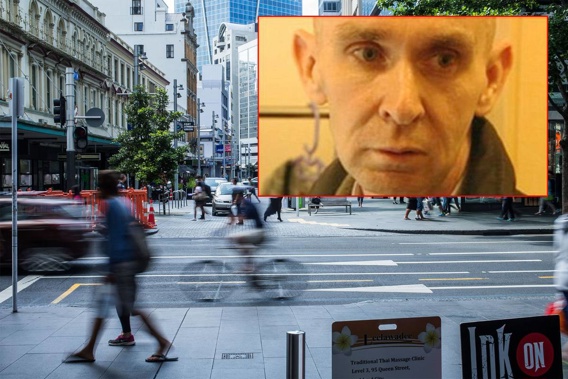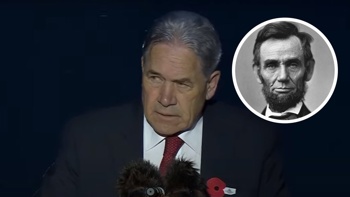
Police are looking into claims a former Russian spy was poisoned while walking down Auckland's Queen St in 2006.
Boris Karpichkov, a former senior KGB agent, spent 15 months in New Zealand in 2006 and 2007 after working as a double agent in the 1990s and passing information to the West.
He has revealed he was walking down Auckland's Queen St in 2006 when someone threw powder in his face and he later became seriously unwell.
"I just was walking, carrying with my bag, and just looking [to my] left side into shopping windows, and just noticed with side vision that some person approached me. He looked like a common beggar and tried to grab my bag.
"Next what I felt was a kind of dust was thrown into my face ... and the beggar just walked away.
"I walked around 1500m and then almost passed out because my head started spinning. I started sweating. Later that evening, my nose started running."
He said he went to the doctor and was told he had the common flu.
He said he was a 90kg "fat man" when he arrived in New Zealand, but after the dust attack he lost 30kg and his body hair started falling out. His health has since stabilised.
A police spokesman confirmed Karpichkov was in New Zealand between June 2006 and October 2007.
"We are currently examining our files to assess what information we may hold about Mr Karpichkov. Given the historic nature of this matter it is likely to take some time to complete this assessment," the spokesman said.
Karpichkov was a Russian spy in Latvia, but in 1995 began passing information to the Latvian government and its Western allies.
When he was discovered in 1998, he fled to London, but became frustrated after eight years of being mucked around by immigration authorities.
In June 2006, when an agent told him his life could be in danger if he stayed in the UK, Karpichkov flew to Auckland on a forged Lithuanian passport.
He had hoped to gain refugee status and then bring his wife and two children to New Zealand, but his application was initially declined.
He appealed to the Refugee Status Appeals Authority, but it was still being considered when he flew back to the UK - on the same forged Lithuanian passport.
The poisoning saga has raised questions of "compatibility" for New Zealand pursuing a free trade deal, says the United Kingdom's top diplomat in New Zealand says.
Part of New Zealand First's government coalition agreement with Labour involves working towards a free-trade deal with Russia.
New Zealand and Russia got close to a deal in 2014, but suspended efforts following the crisis in the Crimea and the European Union imposing sanctions.
Asked about a Russia-New Zealand FTA on Thursday, Britain's High Commissioner to New Zealand, Laura Clarke, hinted it could be at odds with deals in Europe.
"We are extremely supportive, firstly, of an EU free-trade agreement, and secondly, we are very keen - once we get to that point - to be pursuing a UK-New Zealand free trade agreement," she told RNZ.
"I would leave it to New Zealand, I think, to reach conclusions there about compatibility and prioritisation.
"Obviously who New Zealand does free trade agreements with is a matter for New Zealand."
Foreign Minister Winston Peters' declined requests for comment this week about whether it would affect trade talks, but on Thursday told RNZ: "I'm pro every country that we are seeking to do trade with".
Meanwhile, Russia's ambassador to New Zealand, Valery Tereshchenko, says Russia had "nothing to do with what happened to Mr Skripal".
"I am sure that this event is a well-stage provocation aimed at fanning an anti- Russian campaign," he told RNZ, through a translator.
Take your Radio, Podcasts and Music with you









